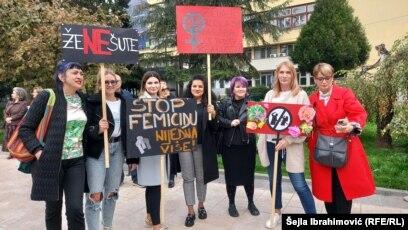The European Roma Rights Centre has sharply condemned the North Macedonian government for its ongoing failure to protect Romani women from femicide, highlighting a disturbing pattern of violence and state neglect. As cases of gender-based killings continue to rise within the Romani community, activists and women’s networks are calling for urgent reforms and comprehensive measures to address the systemic vulnerabilities that leave Romani women disproportionately exposed to deadly violence. This growing outcry underscores the critical need for North Macedonia to confront deep-seated discrimination and enforce stronger protections to safeguard the lives of its marginalized female population.
Femicide in North Macedonia Raises Alarming Concerns for Romani Communities
Recent incidents of femicide targeting Romani women in North Macedonia have spotlighted a distressing pattern of systemic neglect and insufficient protection measures by national authorities. Activists from Romani women’s networks have voiced profound concerns over the state’s failure to implement effective policies that address the unique vulnerabilities faced by Romani communities. Despite repeated calls for tailored interventions, data reveals a startling gap in resources allocated for prevention, legal support, and survivor assistance within these marginalized groups.
Key challenges identified include:
- Limited access to culturally sensitive counselling and shelters
- Low rates of reporting due to fear of discrimination and retaliation
- Inadequate training for law enforcement on ethnic and gender-based violence
| Year | Reported Cases | Convictions |
|---|---|---|
| 2021 | 18 | 3 |
| 2022 | 24 | 5 |
| 2023 | 29 | 7 |
Human rights organizations, including the European Roma Rights Centre, emphasize the urgent need for the Macedonian government to engage directly with Romani leaders and women’s groups, ensuring equitable access to justice and comprehensive social protections. Without dedicated efforts to dismantle institutional barriers, the cycle of violence against Romani women is likely to continue, deepening inequality and eroding trust in public institutions.
Romani Women’s Network Criticizes Government Inaction and Calls for Urgent Reforms
The network of Romani women in North Macedonia has issued a powerful rebuke of government authorities for their persistent neglect in addressing the escalating femicide rates within Romani communities. Highlighting a deeply rooted pattern of systemic disregard, activists stress that the failure to implement effective protective measures not only endangers countless women but also perpetuates cycles of violence and exclusion. They emphasize that current legislative frameworks lack the specificity and enforcement mechanisms necessary to shield Romani women from gender-based violence, calling out institutional biases and urging policymakers to prioritize this crisis urgently.
Key demands voiced by the network include:
- Comprehensive reforms to existing gender violence laws with explicit inclusion of marginalized ethnic groups
- Increased funding for outreach programs tailored to Romani communities
- Mandatory training for law enforcement on cultural sensitivity and gender violence issues
- Establishment of safe shelters and accessible legal support for victims
| Issue | Current Status | Recommended Reform |
|---|---|---|
| Legal Protection | General laws with low enforcement | Specific provisions for Romani women |
| Police Training | Limited awareness | Cultural & gender sensitivity programs |
| Support Services | Insufficient shelters | Expanded, localized safe houses |
European Roma Rights Centre Proposes Targeted Policies to Enhance Protection and Justice
The European Roma Rights Centre (ERRC) has outlined a series of targeted policies aimed at confronting the alarming rates of femicide among Romani women in North Macedonia. The organisation stresses that existing legal frameworks fall short in addressing the specific vulnerabilities faced by Romani communities, calling for enhanced protections, improved access to justice, and culturally sensitive support systems. Among the key proposals are mandatory training for law enforcement on Roma cultural competencies and streamlined reporting mechanisms to ensure timely intervention in cases of gender-based violence.
To better illustrate these recommendations, the ERRC has presented the following priority actions:
- Community engagement initiatives to rebuild trust between Romani women and state authorities.
- Specialized legal aid services designed to empower survivors during judicial processes.
- Data collection improvements to accurately monitor incidences of violence within Roma populations.
- Cross-sector collaboration between NGOs, health services, and law enforcement agencies.
| Policy Area | Current Status | ERRC Recommendation |
|---|---|---|
| Law Enforcement Training | Limited cultural awareness | Implement mandatory, recurrent programs |
| Legal Aid Access | Underfunded and scattered | Establish specialized Romani women’s legal support units |
| Data Reporting | Incomplete and inconsistent | Standardize data collection with ethnic disaggregation |
To Conclude
The ongoing failure of North Macedonia’s authorities to adequately address and prevent femicide, particularly against Romani women, continues to draw sharp criticism from human rights organizations. The European Roma Rights Centre’s condemnation highlights a grim reality faced by this marginalized community, underscoring the urgent need for systemic reforms and targeted protections. Without decisive action from the state, the cycle of violence threatens to persist, leaving vulnerable women without the security and justice they deserve. As calls for accountability grow louder, the international community watches closely, demanding that North Macedonia uphold its obligations to protect all citizens from gender-based violence.
















